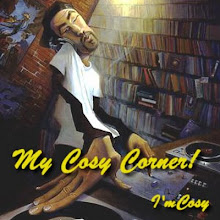Toastmasters delivering assignment speeches, 2 or more in one evening...
Sometimes a club has more members who want to present manual speeches than time available during regular club meetings. If this happens, the club may occasionally conduct a special meeting devoted solely to manual speeches. Sometimes these meetings are called “speakathons,” “speech marathons,” or “speakouts.” Such meetings are acceptable, provided the following criteria are met:
* Each speech is carefully prepared to allow the speaker to focus on the project objectives
* All speeches receive both written and verbal evaluations from a Toastmasters member
* Each Toastmaster is limited to one speech at any meeting for credit toward any CC or AC award
Please note, our awards represent more than just presenting speeches. They also represent a learning process in which a member prepares and presents a speech and receives an evaluation that includes suggestions for improvement as well as comments on the presentation's strengths, both of which are incorporated into the next presentation. This results in better speeches. When members do not follow the educational program described in our manuals, the member is not learning the skills he or she joined the club to learn.
We recommend you discuss this topic with the other club officers and emphasize the benefits members receive when they follow the entire Toastmasters program as described in our manuals.
Doreen Yosha
Instructional Writer
Toastmasters International
Toastmasters: Confidence. Leadership. Service.
www.toastmasters.org
Sometimes a club has more members who want to present manual speeches than time available during regular club meetings. If this happens, the club may occasionally conduct a special meeting devoted solely to manual speeches. Sometimes these meetings are called “speakathons,” “speech marathons,” or “speakouts.” Such meetings are acceptable, provided the following criteria are met:
* Each speech is carefully prepared to allow the speaker to focus on the project objectives
* All speeches receive both written and verbal evaluations from a Toastmasters member
* Each Toastmaster is limited to one speech at any meeting for credit toward any CC or AC award
Please note, our awards represent more than just presenting speeches. They also represent a learning process in which a member prepares and presents a speech and receives an evaluation that includes suggestions for improvement as well as comments on the presentation's strengths, both of which are incorporated into the next presentation. This results in better speeches. When members do not follow the educational program described in our manuals, the member is not learning the skills he or she joined the club to learn.
We recommend you discuss this topic with the other club officers and emphasize the benefits members receive when they follow the entire Toastmasters program as described in our manuals.
Doreen Yosha
Instructional Writer
Toastmasters International
Toastmasters: Confidence. Leadership. Service.
www.toastmasters.org
